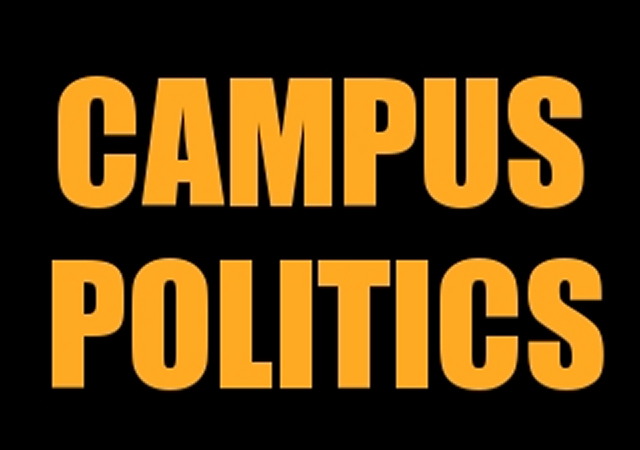Disinvitation Has Been Replaced With a New Method to Keep Conservative Speakers Off Campus
“Conservative voices are still being stifled on campus, only now through more-cunning methods.”

Adam Hoffman is a student at Princeton. He claims that disinvitation of conservative speakers on campus has been replaced with the method of just not inviting them in the first place.
He writes at National Review:
The New Strategy to Suppress Conservative Voices on Campus
Has the college-speaker-disinvitation craze ended? Some would have you believe so. The Niskanen Center proclaimed that “the campus free speech crisis” ended in 2018. In 2019, Commentary magazine optimistically argued that things were “looking up on campus.” The numbers seem to support this view. According to the Foundation for Individual Rights in Education (FIRE), university disinvitations peaked in 2016 and have slowly declined since. However, my experience at Princeton University has taught me that the attack on free speech is hardly over. Conservative voices are still being stifled on campus, only now through more-cunning methods.
As president of the right-leaning party of Princeton University’s American Whig-Cliosophic Society, the oldest collegiate literary, political, and debate society in the nation, I am responsible for bringing conservative speakers and voices to the heart of Princeton’s political scene. In 2020, I tried to do my job, only to be shut down by an intolerant Left.
Several months ago, I submitted a list of potential speakers to the American Whig-Cliosophic Society’s Speakers Council. They flagged a number of my speakers as controversial and decided to put them to a vote before the group’s student Governing Council, in accordance with procedures laid out to prevent a repeat of a 2018 disinvitation incident. My “provocative” speakers included Washington Post columnist and Pulitzer Prize winner (and Princeton alumnus) George Will and Neomi Rao, a former law professor and currently a circuit judge on the United States Court of Appeals for the District of Columbia. Predictably, none of the left-leaning party’s choices, including extreme progressives such as bell hooks and provocateurs such as Jamelle Bouie, were deemed controversial enough for further review.
Unfortunately, the speakers’ fates seemed sealed before we even began consideration. Some on the Speakers Council deemed George Will too controversial for campus, on the basis of his writing on “marginalized groups,” particularly his accused insensitivity for victims of sexual assault. The Governing Council feared his heterodox views would trigger discomfort and lead to protests.
Donations tax deductible
to the full extent allowed by law.








Comments
I guess the left needs to see that the right can protest even better than the left. That would take away the excuse for inviting liberals and not conservatives, saying it’s to prevent protests.
The left makes an industry of protesting. The right has jobs to go to. Therefore the left gets an advantage.
Not just protesting, plenty force, looting, burning, assaulting and murdering.
I doubt that protesting will be enough to change this.